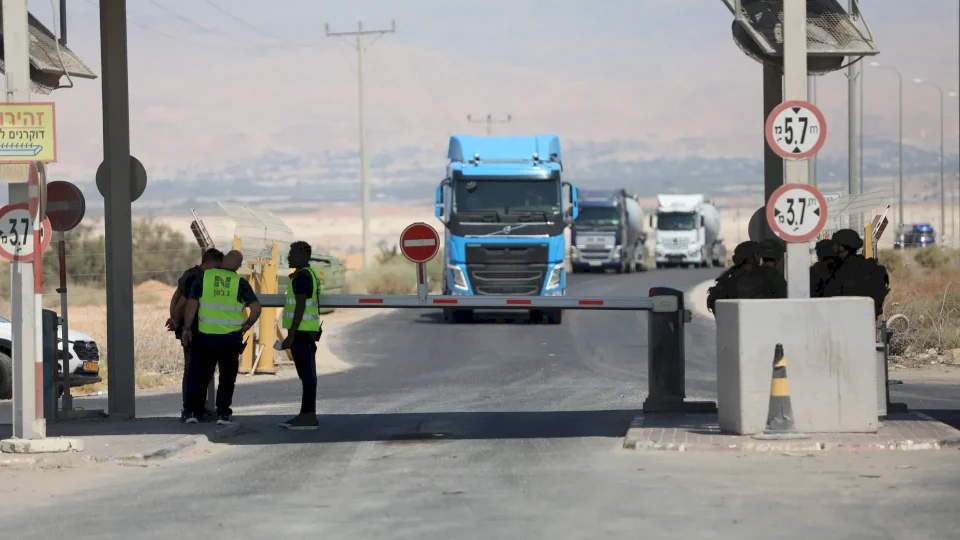
The Federation of Chambers of Commerce Calls for Urgent International Action to Reopen the Al-Karama Trade Crossing
SadaNews - The Palestinian Federation of Chambers of Commerce, Industry, and Agriculture has urged the international community to take immediate action to urgently and fully resume operations at the Al-Karama crossing for commercial shipping between Palestine, the Hashemite Kingdom of Jordan, and the Arab world.
The federation explained in a press statement issued today, Thursday, that the Al-Karama crossing constitutes the main artery for Palestinian foreign trade and is the most important commercial outlet that connects Palestine to the outside world, especially the Arab world.
It affirmed that the continued closure of the crossing and the complete halt of commercial shipping have caused severe damage to the Palestinian economy, due to disruptions in the supply of raw materials and production inputs, a decline in production operations, and a weakening of the competitiveness of Palestinian products in local and foreign markets, in addition to shortages of essential goods, rising prices, and imposing additional burdens on consumers.
The statement indicated that the closure of the crossing has also hindered the export of Palestinian products to Arab and Asian markets, negatively impacting the national economy through a decrease in exports and a reduction in the contribution of productive sectors to the gross domestic product, and causing disruptions to the workforce in related agricultural, industrial, commercial, and service sectors.
The federation called on international, Arab, and UN institutions to urgently act to reopen the crossing for commercial traffic without delay, to increase its daily operating hours, and to reopen it to travelers on Saturdays as was previously practiced, stressing that the crossing constitutes an essential lifeline for both the economy and humanitarian needs, and is a fundamental pillar for continuing production, employing the workforce, ensuring food security, and providing goods to citizens at fair prices.

The Problem of Shekel Overcrowding Worsens.. Fuel Station Owners Threatened with Closure o...

The Palestinian Economy at a Crossroads: 4 Files Awaiting Resolution

Mas Institute Publishes New Study on "Political Economy and Challenges of Palestinian Deve...

A Strong Blow to Smotrich: The Knesset Abolished Doubling the VAT Exemption for Online Pur...

Exchange Rates of Currencies Against the Shekel on Tuesday (February 24)

Oman: Ministerial Decision to Establish the "Palestinian Endowment Foundation" with a Capi...

Newspaper: 'Peace Council' Prepares Plan to Launch 'Digital Currency' for Gaza Aimed at Dr...
